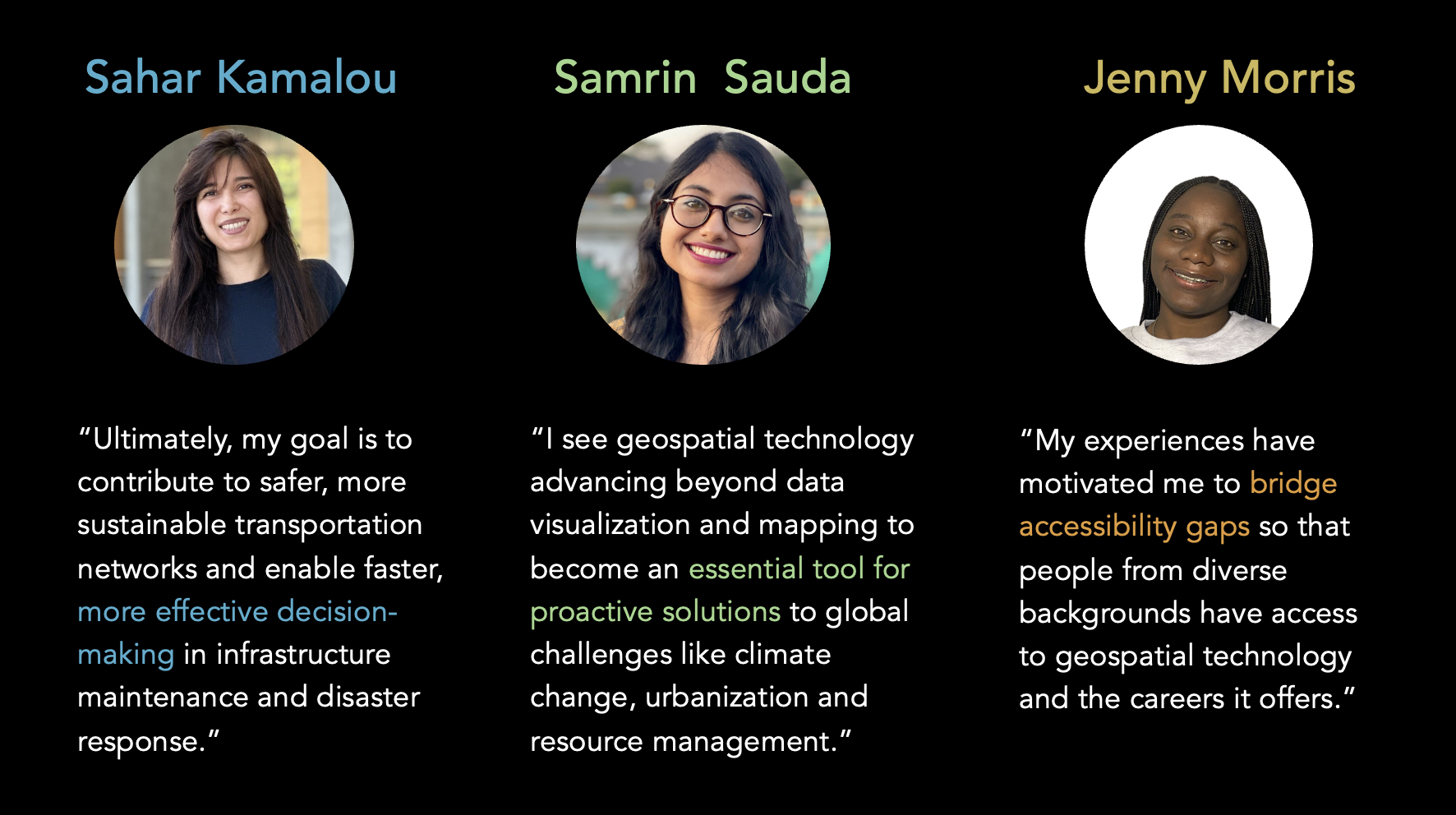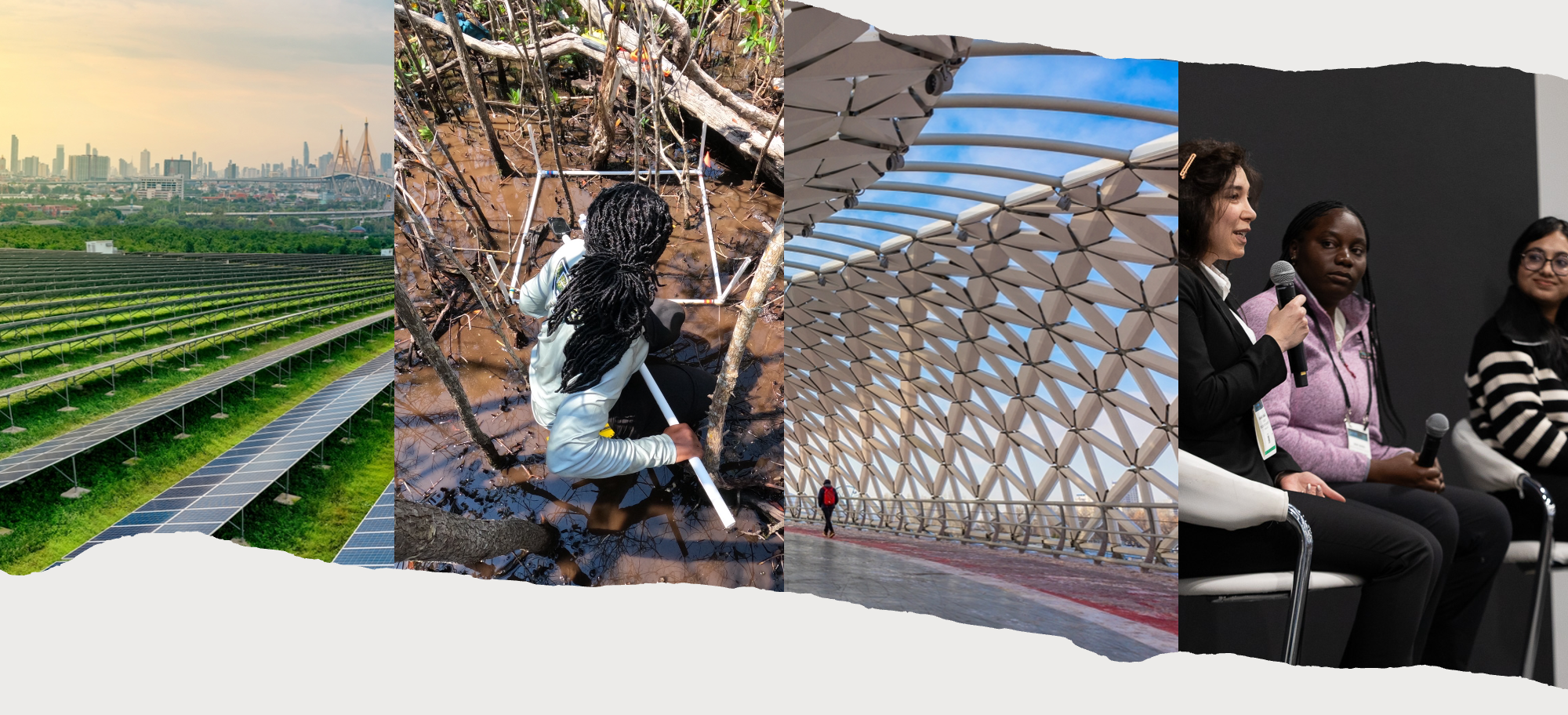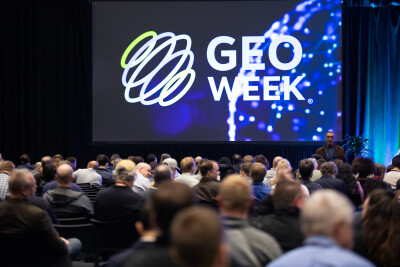As the geospatial industry continues to grow, the need to develop and support the next generation of professionals has never been greater. Conversations - and concerns - about the “future geospatial workforce” often focus on hypotheticals: Who will drive the industry forward and what skills will they need? But the future workforce is not just an abstract idea; it is already taking shape in the field and at universities today. The challenge now is ensuring that these emerging professionals have the support and opportunities necessary to transition into the industry successfully.
To help bridge that gap, organizers of Geo Week launched the Geo Empower Event Scholarship, dedicated to recognizing and encouraging young professionals who are passionate about geospatial technology and the industries it serves. After reviewing over 200 applications, three exceptional students were selected to receive travel support to attend Geo Week 2025, where they could network, make connections, and get a better sense of how the industry operates through educational content and in-depth discussions.
A snapshot of the industry's future
These three scholars are more than just award recipients—they are a glimpse into the future of the geospatial workforce. Their dedication, innovation, and passion for geospatial technology reflect the industry's evolving needs and the boundless possibilities ahead. By investing in these individuals, we are investing in the next generation of leaders who will shape the industry for years to come.

During her undergraduate studies in Civil Engineering Geomatics in Iran, Sahar Kamalou witnessed the power of photogrammetry and 3D firsthand when it was used to study an ancient skeleton discovered by an archeaological team, using the data to accurately estimate the skeleton’s age. That moment sparked a passion for geospatial technology that has shaped her academic journey ever since. Now a PhD student in Geomatic Engineering at Oregon State University, she is pushing the boundaries of real-time geospatial data processing. Her research focuses on characterizing road mobile lidar data and developing innovative frameworks to enhance transportation infrastructure management and disaster response. By integrating lidar and photogrammetry, Sahar hopes to revolutionize data acquisition and analysis, making geospatial technologies more efficient and impactful.
For Samrin Sauda, the path to geospatial research was deeply personal. Growing up in Bangladesh, she saw firsthand how natural disasters could devastate communities, fueling her commitment to environmental resilience. Now pursuing a PhD in Geography at Pennsylvania State University, she is leveraging remote sensing, GIS, and machine learning to develop predictive models for hydrological extremes. Her work aims to help communities better prepare for floods and other climate-related hazards. Samrin envisions a future where geospatial technology is not just a tool for analysis but a proactive force in disaster mitigation, equipping vulnerable populations with the insights they need to protect their homes and livelihoods.
Jenny Morris’s passion for conservation and climate resilience is rooted in her upbringing in the Bahamas, where the impacts of climate change are impossible to ignore. As a master’s student in Environmental Science at Florida Gulf Coast University, she is using lidar and drones to assess mangrove forest recovery after hurricanes and recently attained her Part 107 licence to be able to pilot drones for her research. By combining aerial imagery with traditional field methods, she hopes to provide data-driven insights that can guide coastal ecosystem management. Beyond her research, Jenny is dedicated to making geospatial technology more accessible and fostering diversity within the field, particularly in regions most at risk from climate change.
Investing in the next generation
The Geo Empower Event Scholarship is just one piece of the puzzle when it comes to workforce development. As the industry continues to evolve, it is crucial to support initiatives that provide education, mentorship, and opportunities for emerging professionals. By recognizing and investing in individuals like these scholarship winners, we are helping to build a diverse, skilled, and forward-thinking geospatial workforce.






